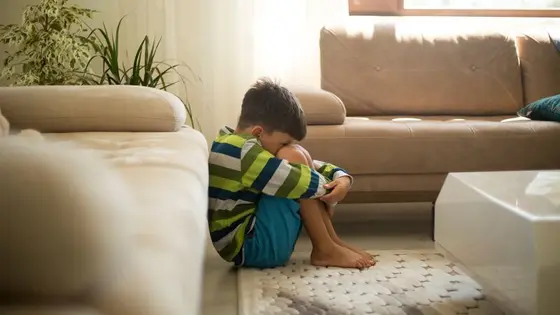T4K3.news
New study links verbal abuse to poor mental health
Research indicates children enduring verbal abuse face a higher risk of mental health issues in adulthood.

A recent study reveals the lasting impact of verbal abuse on mental health in adulthood.
Study shows verbal abuse can harm children's mental health more than physical abuse
A study published in BMJ Open highlights that adults who experienced verbal abuse as children are 64% more likely to struggle with poor mental health. This research analyzed data from over 20,000 participants across seven studies conducted from 2012 to 2024. While physical abuse showed a decrease over time, cases of verbal abuse have notably risen, indicating a concerning trend. The prevalence of low mental wellbeing is reported to be 29% for those experiencing both types of abuse, compared to 16% for those without any childhood trauma.
Key Takeaways
"Our study reveals that degrading, humiliating and abusive language directed at children can have long-term mental health impacts at least as severe as those associated with physical abuse."
Prof Mark Bellis emphasizes the severe effects of verbal abuse on mental health compared to physical abuse.
"Any gains made in reducing physical abuse risk being undone by rising rates of verbal abuse."
Jessica Bondy warns that improvements in addressing physical abuse are threatened by increasing verbal abuse.
This study compels society to reconsider the impact of verbal abuse. While initiatives target physical abuse, the rising trend of verbal mistreatment may offset the positive strides made. The mental health repercussions of verbal abuse can be profound, indicating a need for parents and caregivers to adopt healthier communication methods. As society progresses towards a more supportive framework for child development, addressing verbal abuse is crucial for nurturing resilience in the next generation.
Highlights
- Words can wound deeply and leave lasting scars.
- Reducing physical abuse should not mean ignoring verbal abuse.
- Verbal abuse rates are rising, risking children's mental health.
- Support for parents is crucial in nurturing healthy communication.
Rising verbal abuse poses a mental health risk
The increase in verbal abuse among children raises critical concerns about their long-term mental health outcomes, especially as physical abuse declines. This trend highlights the need for effective communication strategies in parenting.
Addressing verbal abuse is essential for fostering positive mental health outcomes in future generations.
Enjoyed this? Let your friends know!
Related News

Study reveals severe impacts of childhood verbal abuse

American children's health faces alarming decline

Higher IQ leads to more accurate life predictions

New study links SNAP to slower cognitive decline in older adults

Smartphone Use Before Age 13 Linked to Mental Health Issues

New study highlights brain's role in social emotions

New study links smartphone use in youth to mental health issues

New study shows grief can lead to increased mortality
